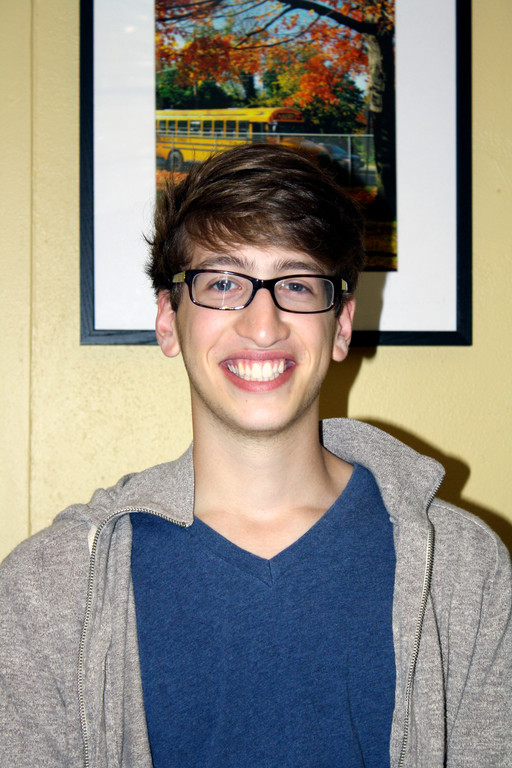Smith regional finalist in Google competition
One of 90 from across the globe to be chosen in science contest
The achievements for Oceanside High School’s Blake Smith just keep mounting.
Not only is he the salutatorian for the class of 2012, but his research project into a possible cure for cancer — which he completed with his partner, Vickram Gidwani from the Horace Mann School in Riverdale — was chosen as a finalist in the Siemens Competition in Math, Science and Technology, finishing fourth in the nation. As a prize, the pair split a $30,000 scholarship.
Now, their project — “Using novel small molecule derivatives to therapeutically modulate erlotinib-resistant lung adenocarcinoma” — was selected as a regional finalist in the 2012 Google Science Fair.
Smith and Gidwani are among 90 regional finalists from around the world, and just 30 from their 17 to 18 age group. Their project studied how modified anti-psychotic drugs could be used to treat cancer. The two worked on the project at Mt. Sinai Medical Center in New York City.
The Google Science Fair is a prestigious new science competition created by the Internet giant Google last year. Google partnered with National Geographic, Scientific American, LEGO and CERN (the European Organization for Nuclear Research) to create the competition.
Now, Google’s panel of teachers and university professors will narrow the 90 regional finalists to 15, which were announced on June 6. Of those 15, there will be one winner from each of the three age groups (13 to 14, 15 to 16 and 17 to 18). Of those three, one will be a Grand Prize Winner.
The prizes are in line with what one would expect from the organizations partnering up to host the competition.
The Grand prize includes a $50,000 scholarship from Google, as well as a 10-day National Geographic expedition to the Galapagos Archipelago for the winner and one parent or guardian. The grand prize winner will also receive a personalized LEGO prize, digital access to the Scientific American archives for their entire school, as well as a “once-in-a-lifetime experience” going hands-on at the headquarters of either Google, LEGO or CERN.
The other two winners will receive $25,000 scholarships from Google, 30 Google computers for their classroom, as well as the personalized LEGOs, Scientific American access and the once-in-a-lifetime experience. All 15 finalists will also receive prizes.






